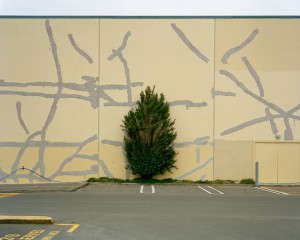Curating Under Pressure
A Symposium on the Ethics of Curating
Christchurch, Aotearoa / New Zealand, 5-8 November, 2015
Initiated by Goethe-Institut and ifa, organized in partnership with Creative New Zealand and the University of Canterbury.
Leonhard Emmerling, Goethe-Institut, and Elke aus dem Moore, ifa-Institute for International Cultural Relations, initiated the conference and realize it in co-operation with Creative New Zealand and the University of Canterbury.
The topic of the conference will be the ethics of curating, discussed in the context of Christchurch, a city that has experienced a series of major earthquakes since a 7.1 magnitude earthquake on 4th September 2010. In February 2011, another devastating earthquake destroyed parts of what was the second biggest city of Aotearoa / New Zealand. It took the lives of 185 people, caused extensive damage and the city still is in the slow process of recovery.
Christchurch’s SCAPE biennial for public art was due to be staged in 2010 but projects had to be postponed due to the disaster. Half a world away, a biennial had been founded in New Orleans in 2006 precisely because of the catastrophe caused by hurricane Katrina, and the ensuing political and social debacle. In both places two different concepts of what art can do in times of pressure and disaster are at work, but both instances raise questions about the role of art in extreme situations – whether caused by natural disasters, extreme political pressure, oppressive regimes or terrorist threats. This symposium will consider a range of concepts and contexts, and ask what they mean for an ethics of curating?
The Goethe-Institut, ifa (Institute for International Cultural Relations), Creative New Zealand and the University of Canterbury invite international theorists and curators to a symposium to discuss the role of art in times and circumstances of pressure. The discussion will focus on the role of biennials as the most successful current model of international art exhibitions worldwide, and it will, more precisely, focus on the audience of biennials. Is there a responsibility towards the audience, and if so, how could it be described? What are art’s promises towards the audience? Does art have the power to heal trauma and to build resilience against hardship and disaster? Does art have the power to instigate change – political or social? And if not: What are the consequences for cultural producers, artists, curators and exhibition organizers? What are the consequences for an ethics of curating?
These are fundamental questions, and we invite international scholars and curators to contribute to these discussions in a range of forums including paper presentations, panel talks, and working groups with colleagues and citizens of Christchurch.


